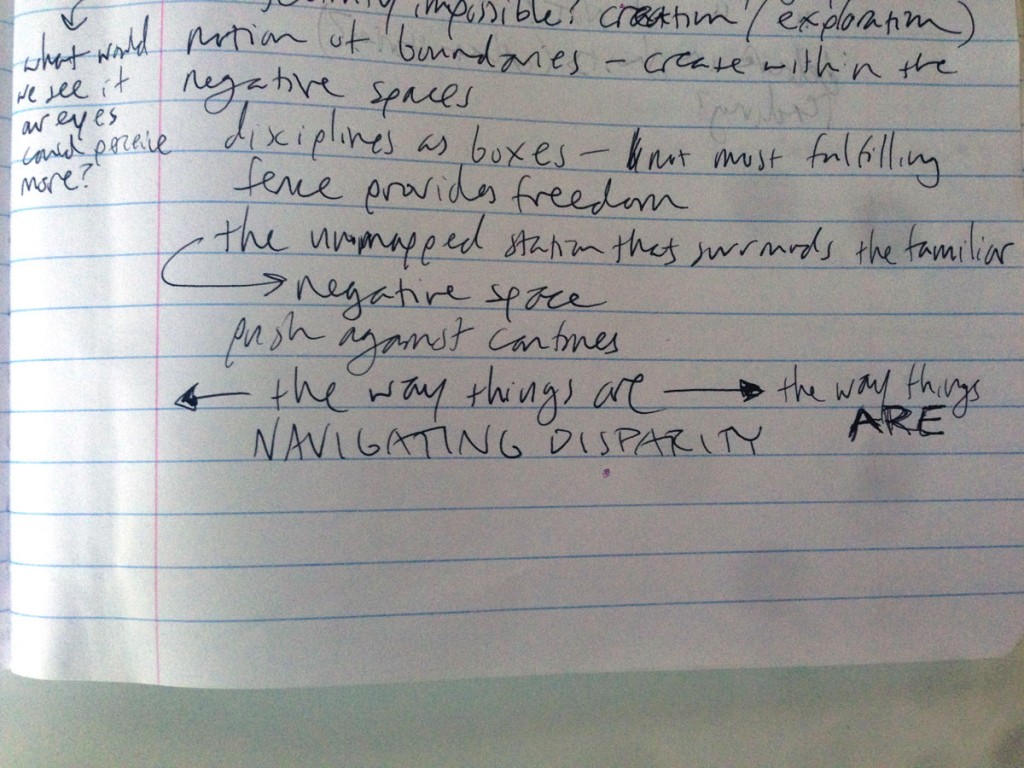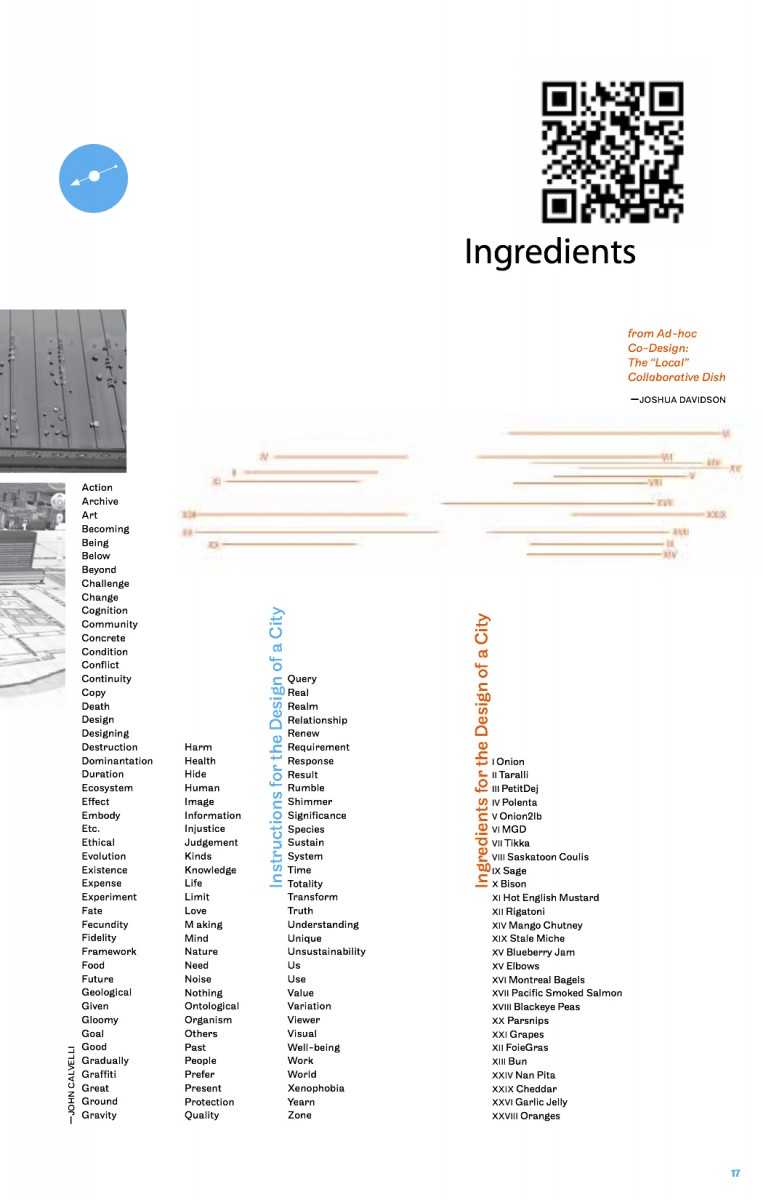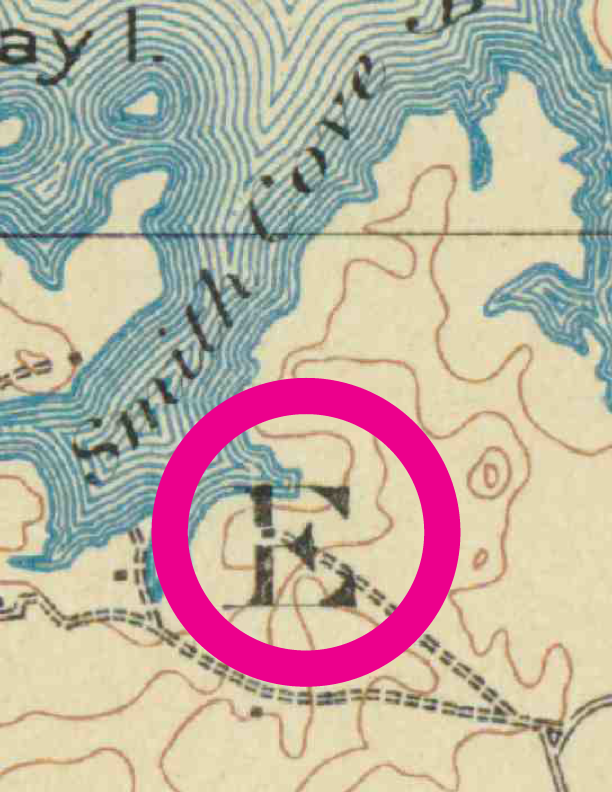Derived from post-classical Latin, the term status quo literally means “state in which.” With a prefix “no”, quo allows us to presume that there is an absence as in “nothing which.” Since we are talking about design, this might be “nothing which (ie specifically) designs” or possibly it is the call to an absence of an existing state of affairs of design.
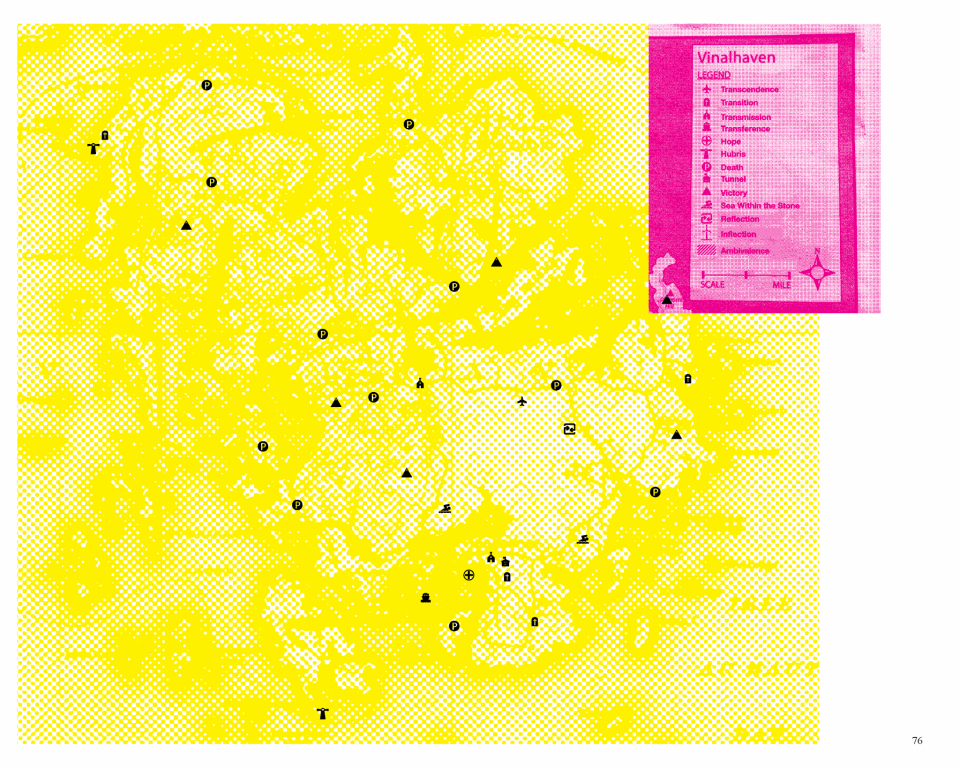
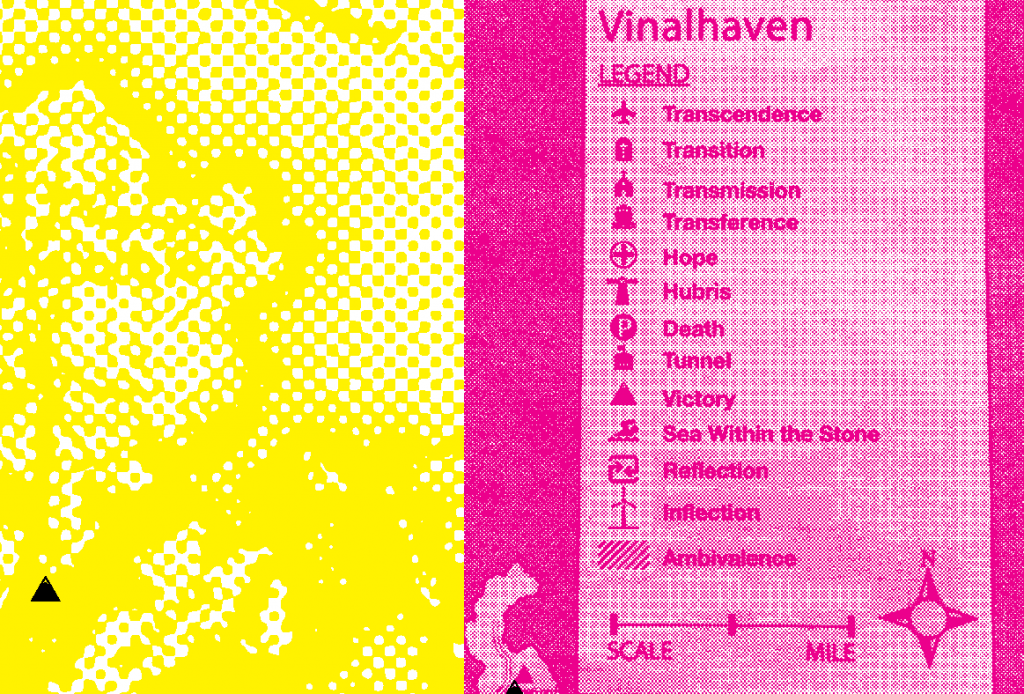
Fiction is an abstraction of the actual world; it draws away the actual world into ideas. Fiction is subversive in its insistence of an alternate world, and “its indictment of the established reality” (Marcuse, 1979)
Hacking is a form of abstraction. Like fiction, it insists on alternate worlds. “Whatever code we hack, be it programming language, poetic language, math or music, curves or colourings, we are the abstracters of new worlds.” (Wark, 2004)
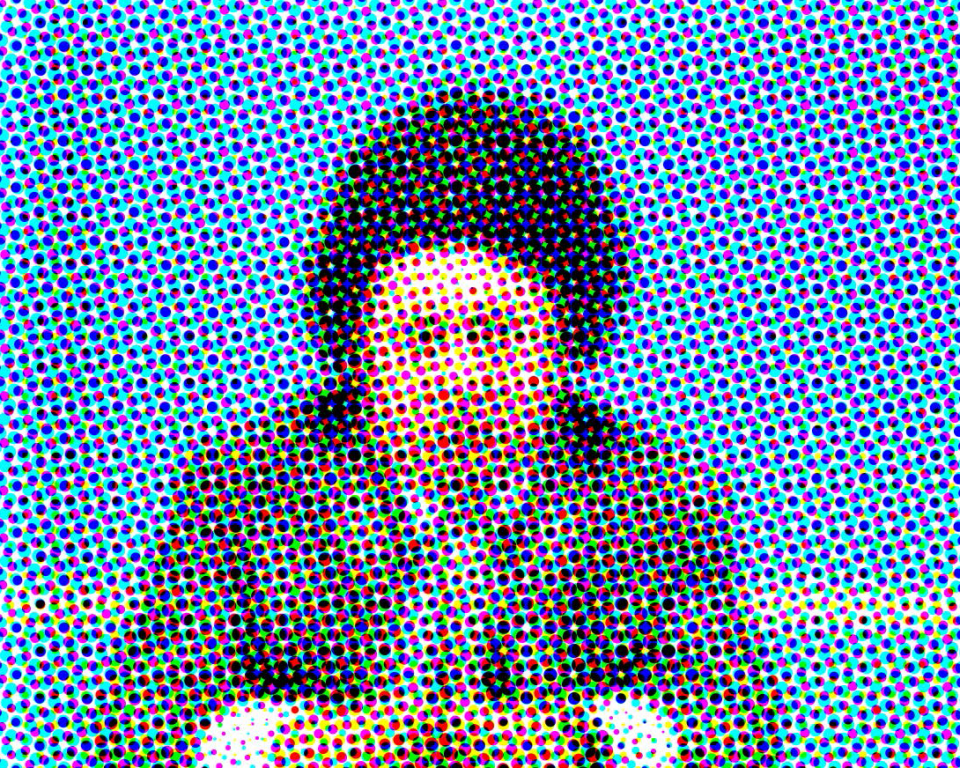
This, then, is a hack of stories, hacking an existing state of affairs into fictions of place and time. It is a story about an island that is actually many islands all occupying the same place and time that is many places and times.
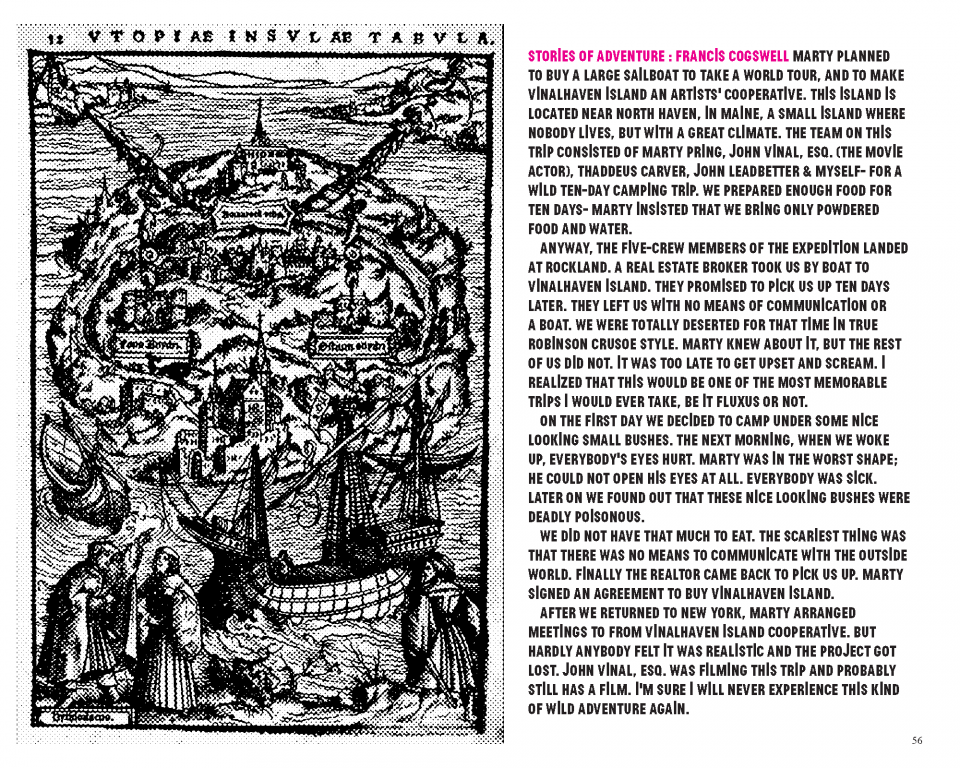
The title of the project, “No Place Land” derives from the name of one of the islands in the project, “Utopia” which is from Thomas More’s novel. The word utopia comes from the Greek: οὐ (“not”) and τόπος (“place”) and so means “no-place”, an imagined place.
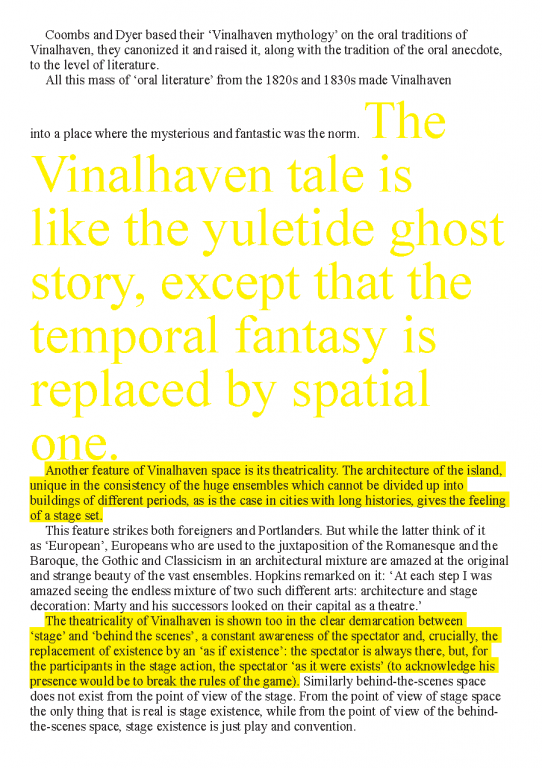
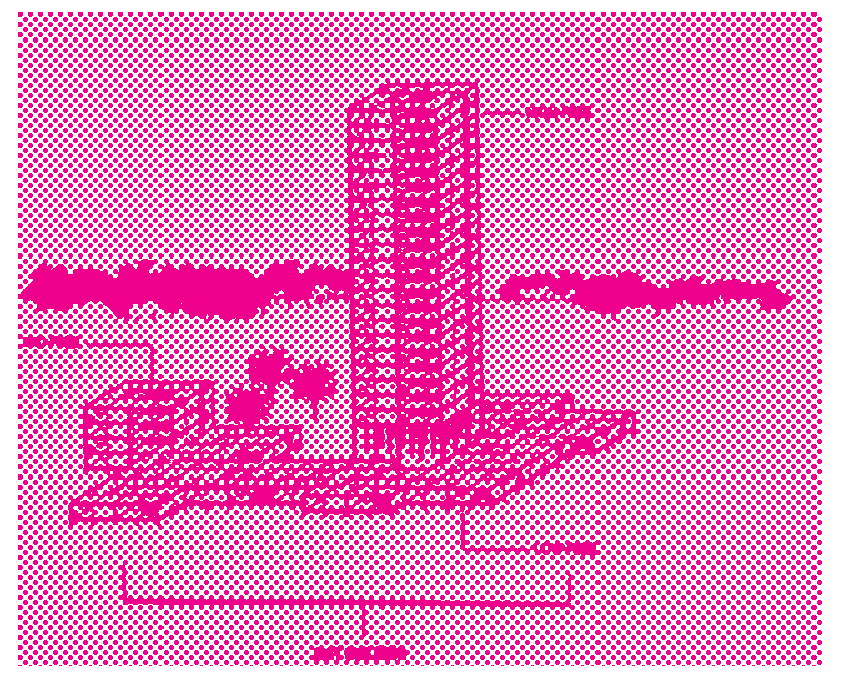
The Islands:
- Vinalhaven, Maine (Vinal: of or due to wine. Haven: A place of safety or refuge.)
- Alameda, California (Alameda: a public walkway or promenade shaded with trees.)
- Fluxus Island, British Virgin Islands (Fluxus: a name taken from a Latin word meaning “flow, flux” (noun); “flowing, fluid” (adj.)[1]—is an international network of artists, composers and designers noted for blending different artistic media and disciplines in the 1960s. They have been active in Neo-Dada noise music and visual art as well as literature, urban planning, architecture, and design. Fluxus is sometimes described as intermedia.)
- Utopia, [nowhere] (Utopia is derived from the Greek words ou (οὐ), “not”, and topos (τόπος), “place”, with the suffix -iā (-ία) that is typical of toponyms; hence Outopía (Οὐτοπία; Latinized as Utopia, with stress on the second syllable), meaning “no-place-land”.
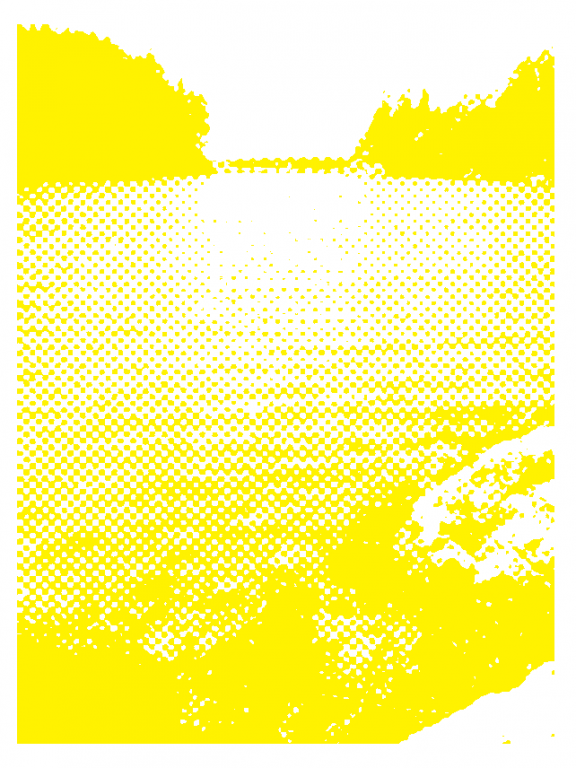
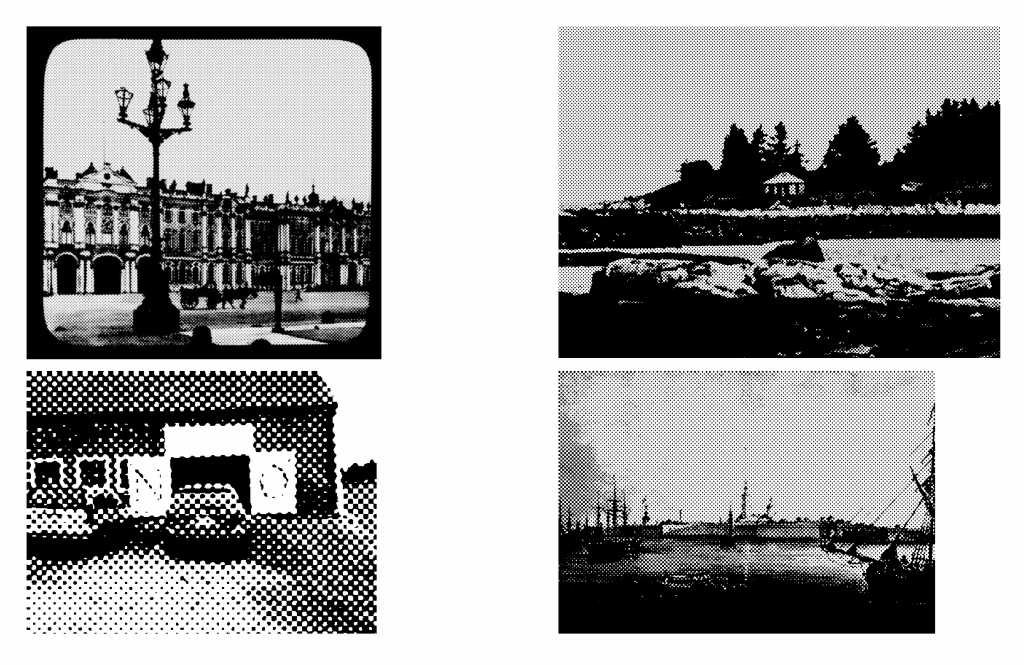
Works Cited:
Marcuse, H. (1979). The Aesthetic Dimension: Toward a Critique of Marxist Aesthetics. Beacon Press.
More, T., & Burnet, G. (1889). Utopia. Primedia E-launch LLC
Wark, M. K. (2009). A Hacker Manifesto. Harvard University Press.
